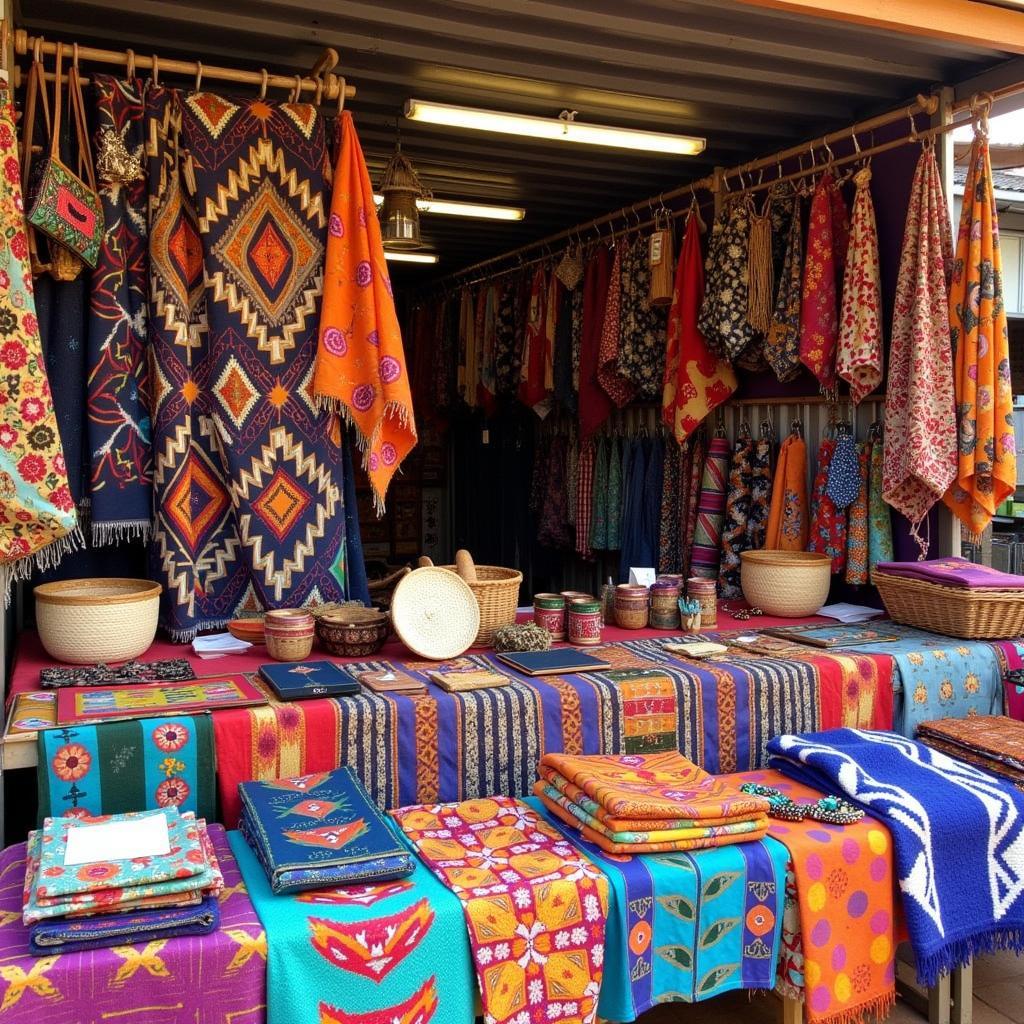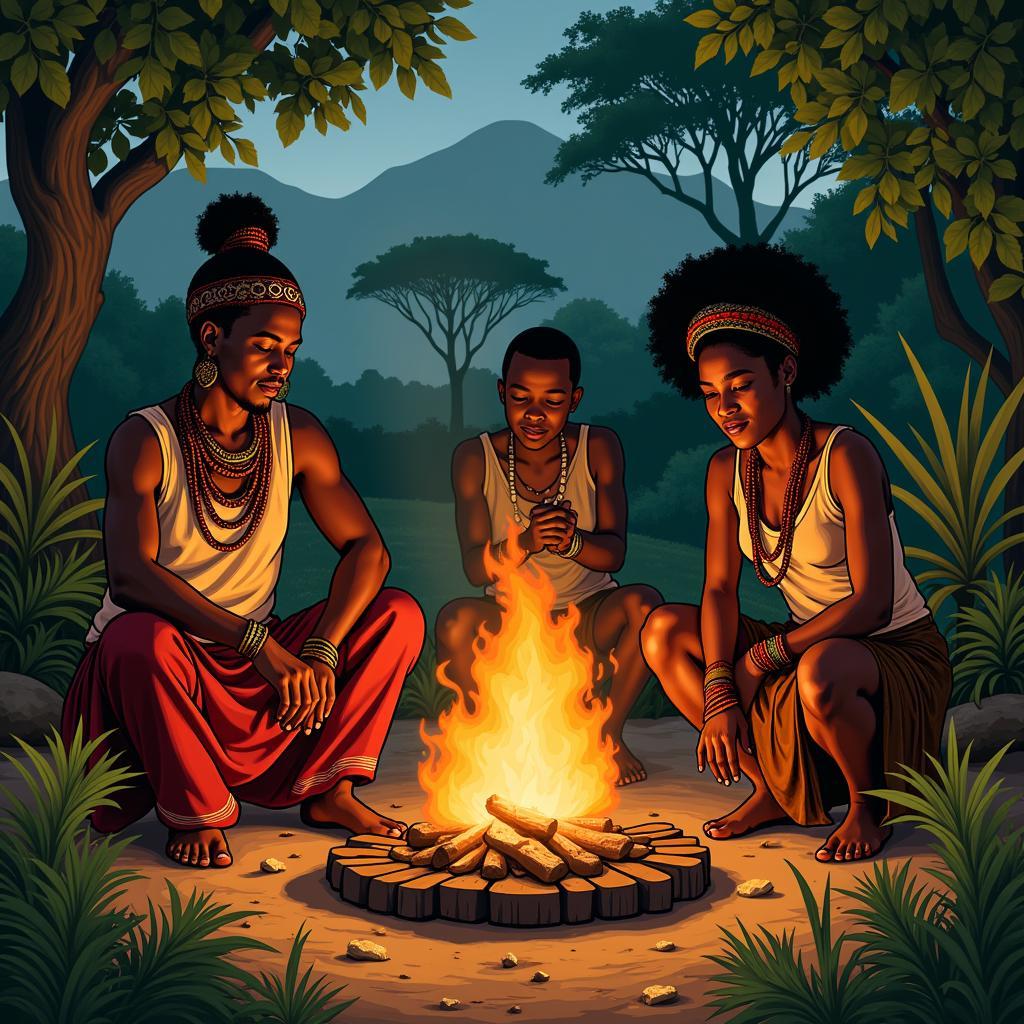Unveiling the African Guru: Wisdom, Tradition, and Modernity
The term “African Guru” evokes images of wisdom, spirituality, and deep connection to the African continent. It suggests a person possessing profound knowledge and understanding of African cultures, traditions, and philosophies. But what does it truly mean to be an “African guru” in today’s world? This article explores the multifaceted aspects of this intriguing concept, delving into the historical context, cultural significance, and modern interpretations of the “African guru.”
Exploring the Concept of an African Guru
The idea of a guru, a revered teacher or guide, is not exclusive to Africa. However, within the African context, it takes on unique dimensions interwoven with ancestral wisdom, oral traditions, and spiritual practices. Historically, “African gurus” weren’t necessarily individuals claiming the title. Instead, they were often community elders, spiritual leaders, healers, or griots who held a respected position due to their knowledge and experience. They were the keepers of ancient wisdom, passing down traditions and guiding their communities through storytelling, rituals, and practical advice.
African societies have always valued knowledge and wisdom, recognizing the importance of learning from those who have come before. This emphasis on intergenerational knowledge transfer has shaped the role of the “African guru” throughout history. From the wise women of pre-colonial times to the contemporary thought leaders shaping the African narrative, the essence of the “African guru” lies in their ability to connect with their heritage and share its richness with the world.
The Modern African Guru: Bridging Tradition and Innovation
Today, the concept of the “African guru” continues to evolve. While the traditional roles of elders and spiritual leaders remain significant, new forms of “African gurus” are emerging. These include academics, artists, entrepreneurs, and activists who are using their platforms to share their knowledge, promote African culture, and inspire positive change. They are bridging the gap between tradition and innovation, bringing ancient wisdom into the modern world. For example, consider the rise of African literature, music, and film, which are increasingly gaining global recognition. These creative expressions often serve as powerful platforms for sharing African perspectives and challenging stereotypes.
The internet and social media have also played a crucial role in amplifying the voices of contemporary “African gurus.” These platforms allow them to reach wider audiences, connect with individuals across geographical boundaries, and build global communities around shared interests and values.
Who Are Some Examples of Modern African Gurus?
Identifying specific individuals as “African gurus” can be complex, as the term itself can be interpreted in various ways. However, there are numerous individuals who embody the qualities often associated with the term, contributing significantly to their respective fields and inspiring others. These individuals are shaping the future of Africa and influencing global conversations on a wide range of topics. They challenge conventional narratives and offer fresh perspectives on African culture, history, and identity.
What is the Significance of the African Guru?
The significance of the “African guru” lies in their ability to preserve and transmit cultural knowledge, inspire positive change, and offer guidance in a rapidly changing world. They are a vital link to the past, present, and future, ensuring that the rich heritage of Africa continues to thrive. They are storytellers, healers, innovators, and thought leaders who are shaping the future of the continent and inspiring the world.
“The true power of an African guru comes not from claiming the title, but from embodying the principles of wisdom, compassion, and service to the community,” says Dr. Adebayo Olufemi, a renowned scholar of African Studies.
Conclusion: The Enduring Legacy of the African Guru
The concept of the “African guru” continues to resonate deeply within and beyond the African continent. It represents a powerful connection to tradition, wisdom, and a profound understanding of the human experience. As Africa continues to evolve, the “African guru” will undoubtedly play a vital role in shaping its future, offering guidance, inspiration, and a deep connection to the continent’s rich heritage. “The future of Africa is intrinsically linked to the wisdom of its past,” adds Dr. Aisha Mohamed, a prominent historian specializing in African oral traditions.
african flower turtle crochet pattern free
FAQ
- What is an African guru?
- How has the role of the African guru evolved over time?
- Who are some examples of modern African gurus?
- What is the significance of the African guru in contemporary society?
- How can I learn more about African cultures and traditions?
- Where can I find resources on African spirituality and philosophy?
- What are some key values associated with the African guru?
Need More Information?
For more insightful content on African culture, explore our other articles:
- African Bodo Tribes
- African Antelope Type of Drum
- African Flower Turtle Crochet Pattern Free
- African Bolga Baskets
If you need further assistance, please contact us:
Phone: +255768904061
Email: [email protected]
Address: Mbarali DC Mawindi, Kangaga, Tanzania
Our customer service team is available 24/7.



